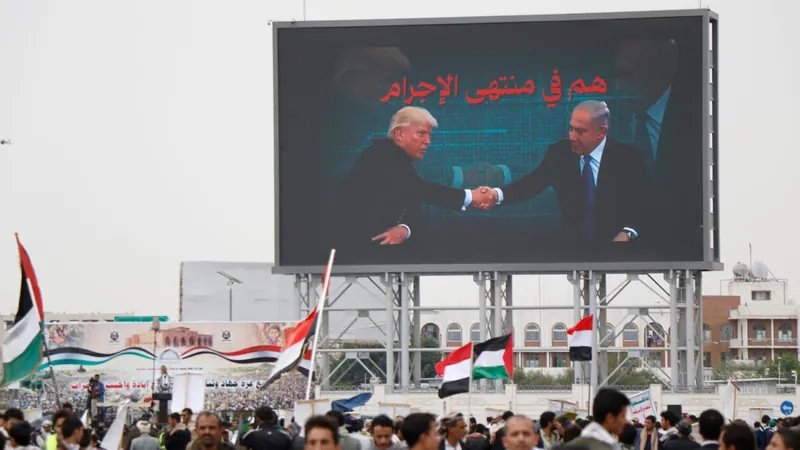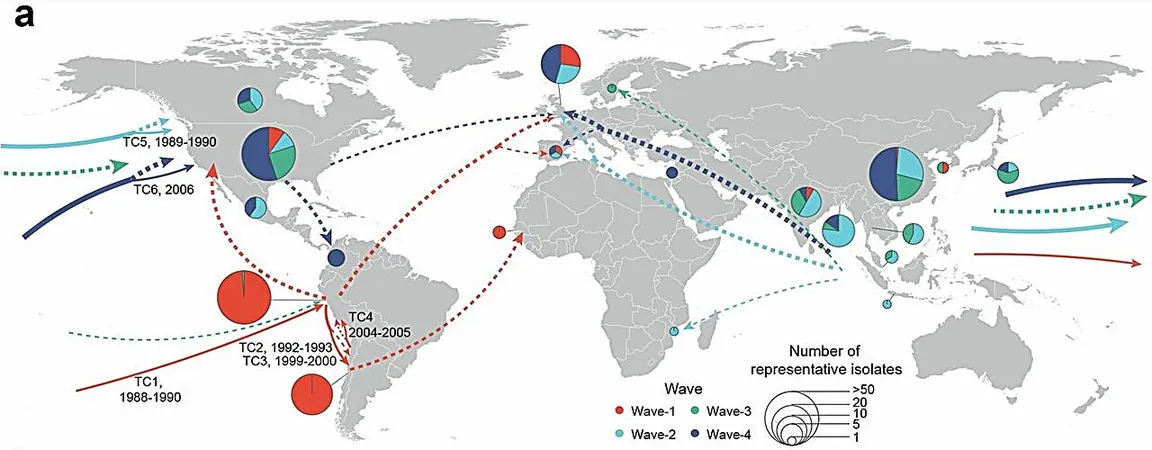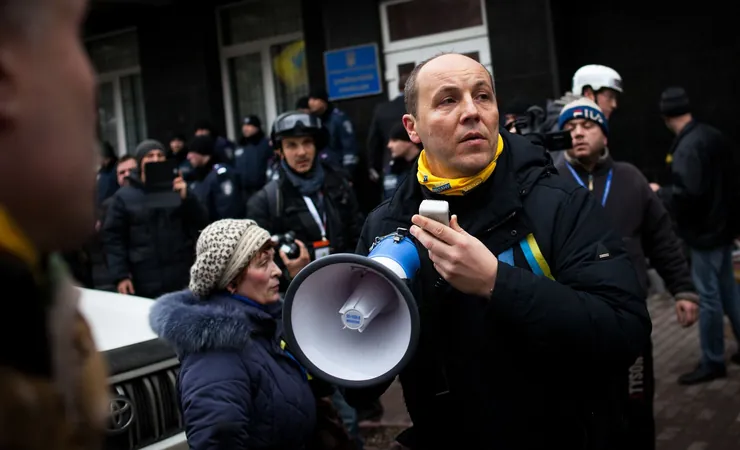
Trump's Controversial Gaza Plans: Relocating Palestinians for 'Smart Cities'
2025-09-03
Author: Liam
Shocking Leaked Plans Unveiled
In a stunning turn of events, leaked documents have revealed a controversial plan allegedly circulating within the Trump administration concerning Gaza. As Israel continues its military operations in the region, a 38-page prospectus outlines a scheme that could change the face of the devastated area forever.
The GREAT Trust: A Blueprint for Transformation?
Dubbed the Gaza Reconstitution, Economic Acceleration and Transformation Trust—or GREAT Trust—the plan suggests a radical approach. It aims to 'temporarily relocate' approximately two million Palestinians to pave the way for the establishment of several high-tech, AI-powered smart cities. This proposal echoes Trump's prior statements about transforming Gaza into a luxurious 'Riviera of the Middle East'.
A Controversial Vision for the Future
The proposed plan would essentially convert Gaza into a U.S.-administered 'trusteeship' for at least a decade. While the issue of displacement is contentious, the specifics are even more alarming: Palestinians would either 'voluntarily' leave, or, if they choose to stay, they would be confined to 'restricted zones' during reconstruction.
Digital Currency for Landowners?
Landowners in Gaza might face further challenges, as they could be offered digital tokens—cryptocurrency in exchange for the right to redevelop their land. These tokens would be intended to facilitate their transition to life elsewhere, or eventually traded for new apartments in the envisioned smart cities.
Incentives and Infrastructure
The incentives for relocation are bold: each Palestinian who opts to leave could receive $5,000 in cash along with four years' worth of rent and food subsidies. The new 'smart cities' promises amenities like housing, healthcare, schools, and multiple high-tech manufacturing hubs, including a futuristic 'Elon Musk Smart Manufacturing Zone'.
A Financial Puzzle
Despite the ambitious scope of the plan, questions remain about funding. While the document claims to avoid government financial backing, it indicates a need for between $70 billion and $100 billion in public investment. Intriguingly, major investments may come from state-backed companies in Saudi Arabia.
The Future of Gaza: A Complex Situation
As the world watches, the implications of such a plan could be profound, benefiting investors and reshaping Gaza as we know it. However, many are left questioning the ethics of displacing an entire population for the promise of modernization and profit. The U.S. State Department has yet to confirm or deny the document's authenticity, keeping the public in suspense about this unfolding story.









 Brasil (PT)
Brasil (PT)
 Canada (EN)
Canada (EN)
 Chile (ES)
Chile (ES)
 Česko (CS)
Česko (CS)
 대한민국 (KO)
대한민국 (KO)
 España (ES)
España (ES)
 France (FR)
France (FR)
 Hong Kong (EN)
Hong Kong (EN)
 Italia (IT)
Italia (IT)
 日本 (JA)
日本 (JA)
 Magyarország (HU)
Magyarország (HU)
 Norge (NO)
Norge (NO)
 Polska (PL)
Polska (PL)
 Schweiz (DE)
Schweiz (DE)
 Singapore (EN)
Singapore (EN)
 Sverige (SV)
Sverige (SV)
 Suomi (FI)
Suomi (FI)
 Türkiye (TR)
Türkiye (TR)
 الإمارات العربية المتحدة (AR)
الإمارات العربية المتحدة (AR)